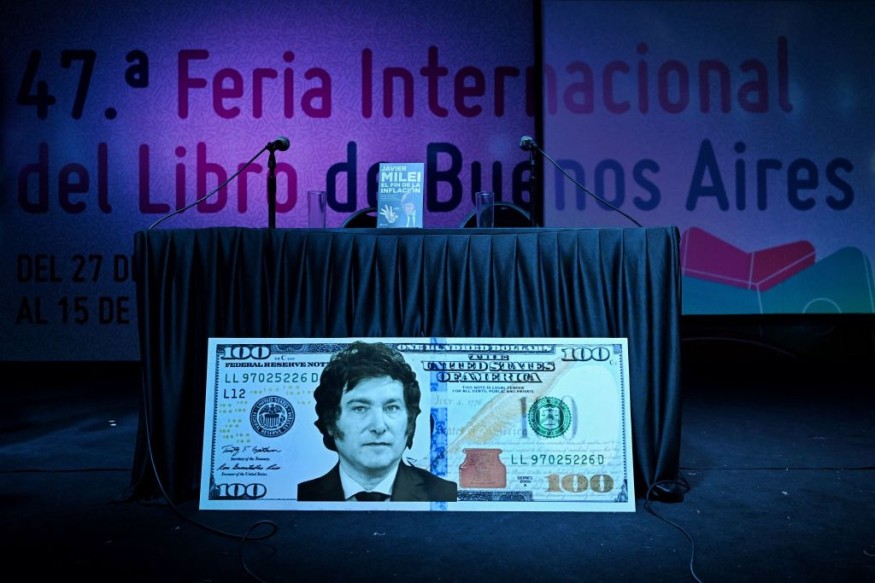Argentina Inflation Soars to 124% as Presidential Election Nears

Consumer prices in Argentina surged by 12.4% in August compared to the previous month, marking the highest monthly inflation rate since February 1991, AP reports.
The annual inflation rate in the country has reached 124.4%, according to government data released by the INDEC statistics agency.
Argentina has been grappling with high inflation for several years, but the double-digit monthly inflation rate in August was a significant milestone.
Economists anticipate that this trend will continue in September.
These rising inflation rates have become a focal point in the upcoming presidential elections, where Javier Milei, a self-described "anarcho-capitalist," is currently leading in the polls.
Economy Minister Sergio Massa is competing against Milei, and both are vying for the presidency.
Patricia Bullrich, the candidate for the main opposition coalition, criticized the government's handling of the inflation crisis.
The high inflation rate poses significant economic challenges for Argentina and has fueled political tensions as the country approaches its presidential elections on October 22.
READ NEXT : Argentina Inflation
Argentina Inflation Rate Forecast
A recent central bank analyst poll suggests that Argentina inflation is expected to end the year above 169%, a significant increase from the previous estimate of 141% made just a month earlier.
The forecast also predicts high monthly inflation rates of 12% in September and 9.1% in October, according to Reuters.
Argentina is grappling with an ongoing economic crisis characterized by a loss of confidence in the peso, continuous depreciation, triple-digit inflation, negative central bank reserves, and economic challenges stemming from factors like drought affecting agriculture.
Additionally, the country is working to salvage a $44 billion agreement with the International Monetary Fund (IMF) and faces the possibility of a $16 billion legal bill due to a US court ruling related to the state's takeover of energy company YPF a decade ago.
While many countries in Latin America are experiencing single-digit inflation rates, Argentina finds itself in a unique and challenging situation with triple-digit inflation levels.
Economy Minister Sergio Massa, who has implemented tax cuts to mitigate the impact of Argentina inflation on workers, pointed to the IMF as a factor contributing to the country's difficulties, particularly citing a 20% devaluation of the currency imposed by the IMF as a burden on Argentine families.
Argentina Inflation and Presidential Election
The price of beef for consumers has surged by 40% to 70% since July, driven by several factors, including prolonged price freezes amid the inflationary economy, as noted by livestock analyst Diego Ponti of AZGroup, a local consultancy, per Al Jazeera.
Residents like Mariela Suchowieski, 18, have felt the impact on their diets, reducing beef purchases to once a month due to soaring prices. She expressed frustration over the high costs.
Suchowieski attended a rally for Milei in La Plata, where he advocated for adopting the US dollar as Argentina's official currency to solve inflation.
Milei autographed 500-peso bills, now worth less than $1 in the black market, illustrating the local currency's depreciation.
Supporters at the rally voiced dissatisfaction with the current political leadership, attributing the country's problems to excessive money printing by politicians.
The public's anger challenges Massa, who has introduced measures to boost salary purchasing power.
He faces the dual challenge of addressing the crisis as a minister while making promises as a presidential candidate, navigating a delicate balance.
READ MORE : Why Did Dominican Republic President Luis Abinader Threaten To Shut Down Border With Haiti?
This article is owned by Latin Post.
Written by: Bert Hoover
WATCH: How Runaway Inflation May Push Argentina to the Right - From Bloomberg Originals
Subscribe to Latin Post!
Sign up for our free newsletter for the Latest coverage!
© 2026 Latin Post. All rights reserved. Do not reproduce without permission.















